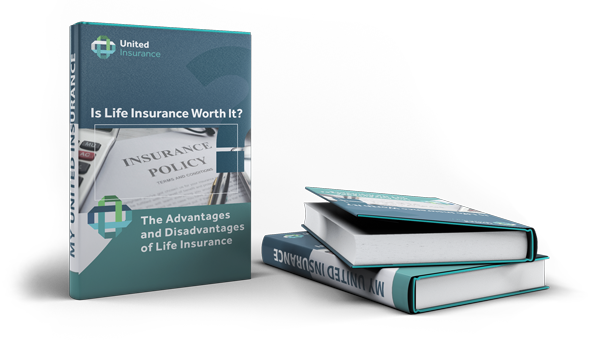
When it comes to life insurance, there are two main types: permanent and term. Permanent life insurance policies are meant to last for the entirety of your life, while term policies only last for a specific number of years. Which one is right for you? That depends on your unique needs and situation. In this blog post, we will discuss the pros and cons of each type of policy so that you can make an informed decision about what’s best for you and your family.
What is Permanent Life Insurance?
The two common types of life insurance are term life insurance and permanent life insurance. With a term life insurance policy, your coverage is temporary and only lasts a set number of years. Typically, policyholders will have coverage for 10, 15, 20, 25, or 30 years.

Permanent life insurance coverage never expires and pays a benefit upon the policyholder’s death. Additionally, many permanent life insurance policies have a cash value component, and so they are sometimes referred to as cash value insurance policies. With a cash value component, a portion of your premium payment goes toward cash accumulation, which grows on a tax-deferred basis. As a policyholder, you can usually borrow against the cash value of your policy. However, this is not commonly advised.
Types Of Whole Life
Whole life insurance
This is the most common type of permanent life insurance. Whole life policies offer a death benefit as well as a savings component. You will pay regular premiums for a set death benefit amount. The savings portion of this policy is contingent upon the dividends that a company pays.
Universal life insurance
Also known as adjustable life insurance, universal life insurance policies have more flexibility than whole life policies. Universal policies have adjustable premiums that are typically lower than whole life insurance premiums.
Variable universal life insurance
Variable universal life insurance policies also have a savings component that you can invest in stocks, bonds, and money market funds. The value of this policy can grow quickly, but the risk of the stock market may affect the value as well. Some variable universal life policies have a guarantee that your death benefit will not fall below a minimum amount.
Indexed universal life insurance
With indexed universal life insurance, policyholders can allocate the cash value of the policy to a fixed account or an equity index account. If you choose this type of policy, you can grow your cash value tax-deferred for retirement while still growing your death benefit.
Guaranteed universal life insurance
Guaranteed life insurance has a guaranteed death benefit provided that the policyholder pays the premiums to keep the policy active. It typically has lower premiums than whole life insurance, because it does not have a cash value accumulation.
What Are The Pros?
The biggest advantage of buying a permanent life policy is that it provides coverage for your entire life as well as a cash value component that can grow over time. This way you will know that your beneficiaries will be taken care of no matter when you die.
Here are a few other benefits you should be aware of:
Cash value accumulation
Again, many permanent life insurance policies have a cash value component that helps your death benefit grow as well as helps hedge against inflation. Essentially, the cash value of your policy makes your death benefit worth more than it would be without it. Also, as your cash value grows, you can take it out to supplement your retirement income or use it as a loan. If you choose to take a loan, this money is considered tax-free income.
Flexible premium payments
Another advantage of this type of insurance policy is that there are some types of permanent life insurance that you can stop making payments and continue enjoying the benefits of the coverage. For example, some policies may allow you to pay higher premiums for a shorter amount of time such as 10 years, and then never have to pay a premium again.
Extra tax benefits
Permanent life insurance policies offer a variety of tax advantages. Some of these advantages include a tax-free death benefit, tax-deferred cash value growth, income tax-free dividends, and tax-free policy loans and withdrawals.

Here Are Some Cons
While there are advantages to purchasing this type of policy, there are also downsides. Three of the most common downsides to buying a permanent life insurance policy (mentioned below) are the costs of such policies, the possibility of the policies lapsing so no benefit is ever paid and the fact that they cannot be converted into another type of policy. In addition to these three downsides, the terms of permanent life insurance policies are more complex than those of term life alternatives and thus harder for customers to understand. Finally, because of the higher premiums, these policies may produce a mediocre return on the investment.
Expensive
The biggest drawback to a permanent life insurance policy is that it is significantly more expensive than term life insurance. Often, people do not need coverage past a certain amount of time. Therefore, it frequently makes more sense to purchase a term policy that you can convert in case you end up needing coverage for a longer amount of time.
Possible policy lapse
If you miss a payment or cannot afford to make payments anymore, your policy could cancel. If your policy cancels, you may have to buy another policy, which means you would be essentially starting over – and perhaps at a higher premium.
Not convertible
While the longevity of a permanent life insurance policy is a benefit it is also a disadvantage. This is because if you buy a policy and discover you no longer need coverage, you would have paid premiums up until this point. Therefore, you would lose all the money you had already paid into the policy.
Some Great Points to Take Into Consideration
Estate planning purposes
To avoid paying hefty estate taxes, you can leave your loved ones a life insurance policy. Life insurance policies are typically tax-free for your beneficiaries. This means that the funds from your life insurance policy can be used to pay estate taxes and still leave money for them to use after your passing.
Leaving a legacy to your loved ones
If it is important for you to leave a legacy, then you can leave your life insurance policy to a family member, charitable organization, or nonprofit.
Paying off debt
If you know that you will die with a mortgage, medical bills, or other debts, a permanent life insurance policy can help pay those debts. This will prevent your family from becoming responsible for these financial burdens.
Maintaining your business after your death
Permanent life insurance policies can fund buy-sell agreements, which would pay off your share of a business. Life insurance policies can also be taken out on employees to help the business stay afloat in case of the loss of a key person, such as a founder, executive, or other vital managers.
Providing for your spouse or dependents
If your family relies on your income, then your untimely death may financially devastate them. Therefore, a life insurance policy can help them pay regular bills, keep up on the mortgage or rent, and handle other financial obligations.

The Bottom Line
Permanent life insurance has advantages and disadvantages. Some of the pros include having a policy that never expires, tax-deferred cash value growth, and the potential to use the policy as collateral for loans. However, permanent life insurance is more expensive than term life insurance and if you cancel your policy or stop making payments, you could lose all the money you’ve paid into it.
When deciding which type of life insurance policy is right for you, be sure to consider your needs and objectives. If you need coverage for a specific period, then term life insurance may be the better option. However, if you want lifelong protection and are comfortable with the higher premiums, then permanent life insurance may be the way to go. You should also speak with a insurance advisor to see which type of policy makes the most sense for you.
